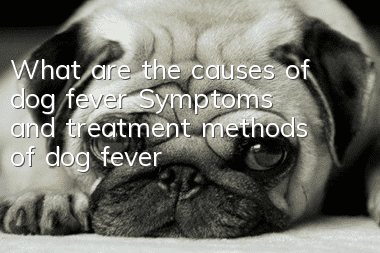Never let your dog swallow cigarette butts, it is extremely harmful and difficult to diagnose!

Everyone knows: Smoking is harmful to health. But do you know what the consequences will be if the dog eats the leftover cigarette butts? The author contacted many clinicians in the industry, and everyone agreed that it is very troublesome. .
Clinical characteristics and hazards
Vomiting or retching.
Listlessness, slow reaction, and loss of appetite.
The course of the disease is long and the fever is unknown.
Gradual weight loss, anemia, and partial jaundice.
The blood test indicators cannot be judged and can only be treated symptomatically.
Cigarette butts are in the stomach, and even with some imaging tests, it is difficult to diagnose.
Many cases are only discovered during autopsy after the dog dies.
Several cases were discovered in time and cured using endoscopy for diagnosis. Early endoscopy is the only feasible diagnostic method.
If radioactive toxins enter the bloodstream, even if a diagnosis is made, it will be difficult to cure.
Dogs can’t speak, which is the biggest problem~~~
Although the chemical substances in cigarettes are mainly dry tobacco, many additives have been added after chemical processing. Cigarette smoke contains about 4,000 chemical substances, many of which are toxic, mutagen-causing substances and thousands of carcinogens.
The radioactive isotope polonium-210 cannot be eliminated from the body. It can enter blood vessels and cause lesions in the heart, liver and stomach. Cigarettes also contain radium-226 and lead-210.
The content of cigarettes will also vary due to different brands, origins, production batches, etc.
24 toxic substances that may be contained in cigarettes and filters and their hazards
1. Nicotine: The main active ingredient in cigarettes can stimulate various abnormal reactions in animal bodies.
2. Acetone: Affects the skin, mouth, kidneys, and liver, and can cause nerve damage and birth defects.
3. Aluminum: Can cause contact dermatitis; also related to Alzheimer's disease.
4. Ammonia: damages alveoli.
5. Arsenic: visceral poisoning and can cause cancer.
6. Benzene: Toxic; classified as a Class I carcinogen by the International Agency for Research on Cancer: drowsiness, dizziness, rapid heartbeat, headache, tremor, confusion, vomiting, coma and death.
7. Butane: If carbon monoxide/carbon dioxide causes insufficient air supply, carbon (carbon black) and carbon monoxide will be produced, which will block the heart and lungs from oxygen contact with breathing, leading to sealed death.
8. Cadmium: affects the respiratory tract, kidneys, liver,Diseases such as rickets.
9. Cesium: causes irritability. Caffeine: can stimulate the brain nerve center of the body and cause insomnia.
10. Carbon monoxide: Causes headaches, respiratory problems, dizziness, etc.
11. Carbon dioxide: It is a poisonous gas. If the gas is inhaled into the body, it can cause breathing difficulties, lung cancer and hepatitis.
12. Colofang: Causes liver and kidney problems.
13. Cyanide/Hydrogen Cyanide (Aegydium): Can cause coma, cardiac arrest, and death. Weakness, drowsiness, worry and excitement. Dizziness, nausea, vomiting, sweating, weakness in fingers and toes, difficulty walking, impaired vision and hearing, reduced thyroid function, and skin pain.
14. DDT and similar pesticides: cause liver disease. Ethanol: Alcohol (ethanol) is addictive and carcinogenic, and may cause cancer and addiction.
15. Formaldehyde: Excessive methane can damage and poison the five major organs of the body, causing cancer, terminal illness and inflammation in the kidneys, heart, spleen, liver and lungs.
16. Hydrogen cyanide (acetylene compounds) lead: Lead to lead poisoning (vomiting, insomnia, headache, hyperactivity, weight loss, loss of appetite, anemia, reproductive disorders...).
17. Magnesium: It can cause diarrhea, and may cause discomfort to the eyes due to burning.
18. Methane: Carbon dioxide is separated from lead gas, which is a drug and experimental product.
19. Methanol: Causes blindness, birth defects, headaches, dizziness, nausea, lack of coordination, confusion, drowsiness, respiratory failure, coma and death.
20. Mercury (mercury): mercury poisoning (affects the mouth, gums, teeth, brain damage and birth defects) Nicotine (nicotine): increases activity and memory, increases heartbeat and blood pressure, decreases appetite, vomiting and nausea, can also Causes cardiovascular disease; is also an addictive substance that is difficult to quit.
21. Petroleum: non-gasified oil, which has a heavy lead smell and can stop the heartbeat.
22. Tar: Most of the chemicals contained in tar are carcinogenic or toxic, including Polyaromatic hydrocarbons (PAHs)
23. Vinyl chloride: Causes headaches, dizziness, loss of coordination, and in severe cases, hallucinations, unconsciousness, respiratory failure, liver failure, cancer, skin allergies, birth defects, and death.
24. Potassium nitrate: worsens heart problems.
Editor’s message: We’ve all heard that dogs eat grass, sawdust, and plastic bags. . . These are not bad, at least they are not poisonous. So why do dogs eat cigarette butts? Is it also a form of pica? The editor thinks: imitating their ownersMaybe it's also an important factor. So smokers must be careful!
Recommended Good Things
Aineng Pet Odor Eliminating Disinfectant can effectively remove body odor/feces odor and other odor molecules! Effective in treating skin diseases caused by fungi/bacteria! Can kill parvovirus/canine distemper virus/coronavirusetc!
It is edible grade for pets, does not contain fragrances, does not contain chemicals, can be sprayed directly, and is harmless to human pets!
Consultation: 13028809308 (WeChat synchronization)
Scan the QR code on WeChat to enter the purchase
- Correct the bad habit of Golden Retriever jumping on people
- Precautions for pet sterilization surgery
- How old can a Smiling Angel Samoyed be to train? A must-read for pet owners!
- 5 tips to teach you how to identify whether a Corgi is a skewer and how to choose a Corgi variety!
- How to feed a pit bull to make it strong? How to raise a pit bull!
- Where is the origin of Golden Retriever?
- How to train a dog, these three dog-raising experiences will help you
- Raising a dog is not as easy as you think. You need to understand these things before raising a dog.
- What to do if your dog has ear inflammation
- How to treat meningitis in dogs



